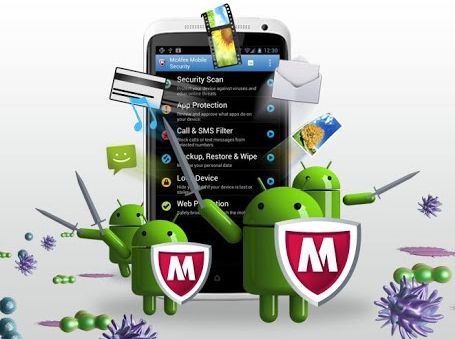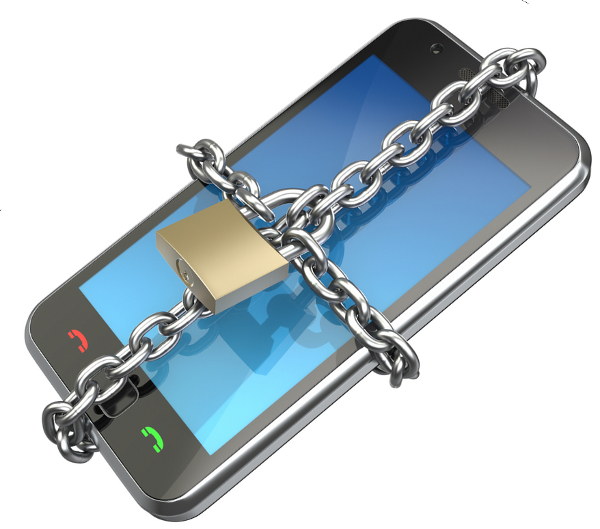
New McAfee Mobile Security lets you lock down apps that don't demand logins
Intel-owned security software company McAfee on Monday released a major update to its McAfee Mobile Security product, featuring a new interface and a new app privacy feature called App Lock.
Though many mobile security suites focus on protecting private information from being stolen and misused, much of the information that is available within apps is left totally unprotected from prying eyes.

Intel, McAfee protect the enterprise cloud
Intel and McAfee aim to address growing cloud concerns through a comprehensive and holistic approach to security. The two companies hope to make data in the cloud as secure as, if not more than, data in the traditional deployment, combining their collective hardware expertise and software know-how to address these concerns.
A recent study commissioned by Intel showed that 56 percent of IT managers are concerned with the inability of public cloud service providers to adequately measure security, and 61 percent worry over the lack of visibility in the private cloud. This leads to delays in adoption in the enterprise by IT managers who could otherwise deliver cost and productivity efficiencies from the cloud, the data suggests.

McAfee releases new security suite for Android, BlackBerry, x86droid
Intel may still be a rookie in the mobile space, but its security software subsidiary McAfee has got Intel's Android project covered. On Monday, the security company launched its second-generation McAfee Mobile Security suite for smartphones and tablets, which includes compatibility with Intel-based Android devices.
The $30 subscription-based application supports Google Android 2.1–4.0, BlackBerry 4.5, 4.6, 4.7, 5.0, 6.0, 7.0, and S60 3rd and 5th Edition, as well as Symbian ^3, and provides a suite of anti-virus, anti-spyware, and anti-theft, tools for mobile devices.

McAfee: 'State actor' behind massive global espionage ring
With hacking becoming an increasing concern as of late with the work of decentralized groups such as Anonymous and LulzSec making headlines, concerns over state-sponsored intrusions has abated. McAfee has brought those fears back to the forefront thanks to a whitepaper released on Wednesday.
McAfee says that it has uncovered a massive hacking operation that has targeted at least 72 government agencies, companies, and organizations in 14 countries since 2006. Worse yet, McAfee has reason to believe a single foreign government may be behind the attacks.

Tough luck Symantec, McAfee, Trend Micro, IBM, CA
The security software market is undergoing dramatic changes, says, Gartner, which released data for 2010 yesterday. Twenty-ten? Why'd it take so long? Gist: The five companies controlling the market have lost dramatic combined share compared to four years earlier. Get this: Microsoft isn't given as a reason.
I call out Microsoft because its entrance into the security software market seemed sure to sap longstanding vendors, or so some claimed five years ago. The company gives away for free products like Security Essentials, and its choosing to compete with longstanding partners was controversial. But as I explained in December 2006, Microsoft needed then and still needs now to protect Windows users from hackers and bot herders.

Intel seeks to change cybersecurity with $7.6B McAfee acquisition
Intel Corporation Thursday morning announced that it will acquire security software and management company McAfee Inc. for $7.68 billion in cash. Intel says the move reflects the changing security climate as more non-PC devices connect to the Internet, like cars, TVs, and medical equipment.
"With the rapid expansion of growth across a vast array of Internet-connected devices, more and more of the elements of our lives have moved online," said Paul Otellini, Intel president and CEO. "In the past, energy-efficient performance and connectivity have defined computing requirements. Looking forward, security will join those as a third pillar of what people demand from all computing experiences."
Intel says there needs to be "a fundamentally new approach involving software, hardware and services," for the increasingly connected world.

One very false positive: McAfee in full damage control mode
Many instances of malware on Windows-based systems masquerade themselves as system services -- the various independent processes that respond to requests from both the operating system and applications with functions that users typically need. Network connectivity and printing are among the more common Windows services; and if you've ever perused the processes list of Task Manager (or, better yet, Process Explorer), you'll find these processes are represented by the single .EXE file that hosts them, svchost.exe.
Any anti-virus database looking for a rogue system service will probably have to refer to svchost.exe as the process that launches it, even though that process is clearly part of Windows itself. On Wednesday, McAfee distributed a .DAT file to many of its enterprise customers that may have had a single faulty character. As a result, their anti-virus systems successfully quarantined not the service launched by svchost.exe, but svchost.exe itself.

McAfee makes strides in the DRM business with Adobe partnership
On the surface, it might seem that a company whose principal business is malware detection and eradication would eschew the thought of associating itself directly with digital rights management technology. But the job of protecting one's assets in an enterprise setting, more than ever before, directly involves being able to identify to whom an asset belongs.
For that reason -- among some others, as you'll see in a moment -- commercial anti-malware software provider McAfee this morning announced its partnership with Adobe for the distribution of data loss prevention (DLP) technology. DLP is a more politically correct, socially conscious phrase for the category of software that protects data against theft and misuse. In a way, DLP leverages much of the existing technology base that McAfee had already built up for itself for malware detection, including critical patents for data file fingerprinting including this one. Ostensibly, such a patent refers to the ability for an anti-malware program to detect infected files within encrypted and packed structures, especially when the encryption can almost completely obfuscate a Trojan file's signature.

New York to get cash from Symantec and Mcafee
Yesterday, the New York Attorney General's office announced a settlement effectively closing the investigation of McAfee's and Symantec's automatic antivirus subscription renewal practices. Several New Yorkers complained that they had purchased the software online, only to later have their subscription automatically renewed without their knowledge or consent.
In the settlement, McAfee and Symantec have to pay a combined $750,000 to the state of New York, and improve the visibility of their subscription terms and renewal policies so customers won't be caught unawares by recurring charges on their credit cards. This will involve notifying customers both before and after renewal of the subscription and offering a 60 day grace period for refunds.

McAfee warns of the risks, dangers, and threats posed by online song lyrics
Anne Hathaway was cute as a button with that guitar on NBC's Late Night last night, explaining to Jimmy Fallon how she was teaching herself to play by watching YouTube videos and searching for chords online. But kind friends need to warn her that one wrong step in her searches could lead to serious trouble. That's according to a recent report from security researchers at McAfee, who say that searches for some types of song information are most likely to lead to a nasty computer infection.
"The World's Most Dangerous Search Terms," released last week, says that searches on song lyrics returned, on average, one site in twenty that could (if visited) infect the guest's machine with some species of malware. In some cases, a page of search results might have an many as 25% of its results plagued with infection. That "maximum risk" number was the highest for any category the survey covered.
McAfee to acquire network security provider Secure Computing
In an attempt to give it a bigger presence in the enterprise network security market, McAfee announced today that it was acquiring Secure Computing Group for $465 million, or $5.75 per share plus $84 million for outstanding preferred stock.
Part of the attraction of Secure Computing is that it offers little overlap with existing McAfee Inc. products, said Vimal Solanki, vice president of worldwide solution marketing for the Santa Clara, Calif.-based company. Users can expect to see a suite product for network security similar to McAfee's Total Endpoint Security and Total Protection for Data, he said.
Norton answers McAfee's SiteAdvisor with Safe Web beta
Symantec is beta testing a new product called Safe Web, built on top Norton Internet Security 2009, which performs many of the same functions as competitor McAffee's SiteAdvisor.
Safe Web requires Norton Internet Security 2009 to run on the user's computer. This differs from McAfee's SiteAdvisor offering, which is a standalone plug-in for Internet Explorer, and a Firefox extension that is also compatible with the Macintosh according to BetaNews tests.
McAfee seeks beta testers for Total Protection suite
Security software vendor McAfee is seeking beta testers for its Total Protection suite, which combines 12 tools into one, much like Microsoft's Live OneCare and Symantec's Norton 360. Although the company doesn't specify, it's likely testing the 2009 edition of the product, which is version 3.0.
McAfee also has its Personal Vault software in beta, and those who join the company's beta program can try out both. Personal Vault, which is a new product that entered testing last year, encrypts files and folder with a password. McAfee's beta program is free and U.S. residents may be eligible to obtain rewards including gift cards or certificates and other prizes.
Fake music, video files spread malware on P2P, says McAfee
McAfee is warning file-sharers that they may be at risk due to a Trojan horse posing as an MP3 or MPEG file.
The security firm said Tuesday that it had detected a half million instances of the malware since Friday, dubbed "Downloader-UA.h." It is calling the incident the most significant malware outbreak in three years.
McAfee's 'Total Protection' includes SafeBoot technology
At long last, McAfee is catching up with its competitors in the security space in the field of data encryption, with the rollout yesterday of a new feature that the company appears to have acquired last November.
McAfee's Total Protection for Data, rolled out on Monday, includes encryption technology obtained through McAfee's recent buyout of SafeBoot. In announcing the $350 million acquisition last October, McAfee made its intentions on that score quite clear.
